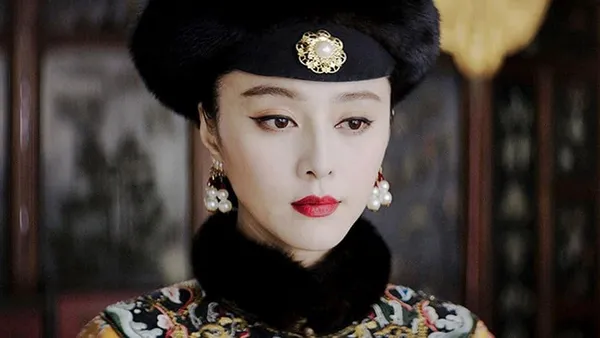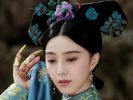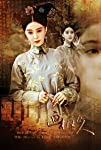Eye For Film >> Movies >> The Lady In The Portrait (2016) Film Review
The Lady In The Portrait
Reviewed by: Jane Fae

Lady in the Portrait (Le Portrait Interdit)? It’s all about the Art, innit? And in this case, Art with a well-and-truly capital A. But it is also about jealousy and impermanence in the court of an absolute monarch.
We begin with empress and former concubine Ulanara (Fan Bingbing) consumed with jealousy as she discovers her husband, emperor Qianlong (Jue Huang) of the Qing Dynasty, pining over a portrait of his late first wife. But she hatches a plan: she will, also like his late wife, learn to play chess (or more probably, given the layout of the board, Xiangqi) and then, when he is in mellow mood – in between sending his elephant to row three and ordering the flaying alive of a traitor – she will ask his permission to have a portrait of her own done. But in the style of the West.

Suitably impressed by her over-the-board skill, Qianlong agrees. He summons general intendent, aka court fixer, Chen (Shih-Chieh King), who in turn nominates Frère Jean Denis Attiret (Melvil Poupaud) as the best of the bunch of French Jesuit artists and sculptors working in the emperor’s court.
And so the painting begins: initially, with much giggling and simpering, as every session is attended not just by Ulanara, but by a posse of her own ladies in waiting, former harem sisters and artists from the Chinese court. There is plenty of room here to explore the collision of cultures. From the divinity of the Chinese emperor, to the rationale behind different approaches to art and the depiction of the individual.
You might smile at the reversal, as Chen, whose role in this film is to act as cultural tour guide, pops up to explain to one listener that, “These Europeans are crazy!” But there are serious undertones, too. Political, as Chen understands all too well that one aim of the Jesuit missionaries is to convert good emperor-fearing Chinese to a Christian fifth column, which might be influential in future conflict.
As the giggling stops and the camera moves in to catch the longing behind the open smiles, there is feeling and perhaps more than a touch of lust. Difficult, complex stuff, since this is not the sort of drama where it is possible for young lovers to do a midnight flit and run away together. For Ulanara, even if she desired such a thing, it would be a sentence of death.
Death, too, for Frère Attiret, albeit his concerns, in between a series of psychedelic and highly charged erotic dreams are more to do with his spiritual death. Because, of course, he is subject to a vow of chastity.
That said, do not be tempted to view this as classic romantic drama or even classic unromantic drama where the focus is on unrequited love. For, no, the principal characters here have bigger fish to fry. Ulanara, as she confesses through a series of conversations with an imagined former empress, is oppressed by the demand that she fulfil not one role, as wife to an emperor, but many. She must live up to her predecessor and, as we see at the end, outshine her successor.
She is constrained and caged, as much as any pretty court bird, and as she admits in one of her ghost conversations, it is only under the gaze of the painter that she feels herself truly to exist.
Beside this, Attiret’s concerns for his own vows pale into insignificance.
This is an intelligent, sumptuous period piece, shining an intriguing light into the corners of the 18th-century Imperial Court of China. It is also, the handouts claim “loosely based on a true story”: though how loosely, I am not qualified to judge. Beyond doubt, it is visually stunning, as it ranges from exquisite, visual set pieces, near photographic in their quality, to more abstract representations of war, of lust and the winding back corridors of the mind.
In this, it owes much to the decision of director Charles de Meaux to double-up as cinematographer.
It is also slow: one of those films where, for a very long time, nothing much seems to happen. And then, nothing happens again. Yet despite this, it manages to convey the pathos, the sadness, and ultimately the tragedy of the empress Ulanara without laying it on with… a trowel!
A useful trick, adopted too by a suitably muted soundtrack, which manages to direct audience attention to what may be going on when, for obvious reasons, the inner emotions in this strictly emotion-free society cannot be displayed. Creds, too, to The Eternal, by Joy Division, which pops up over the final credits.
If you want action, this is probably not the film for you. Certainly, I found it a difficult watch at first. But it grew on me and by the end, I was fully involved.
Reviewed on: 11 Sep 2020


















